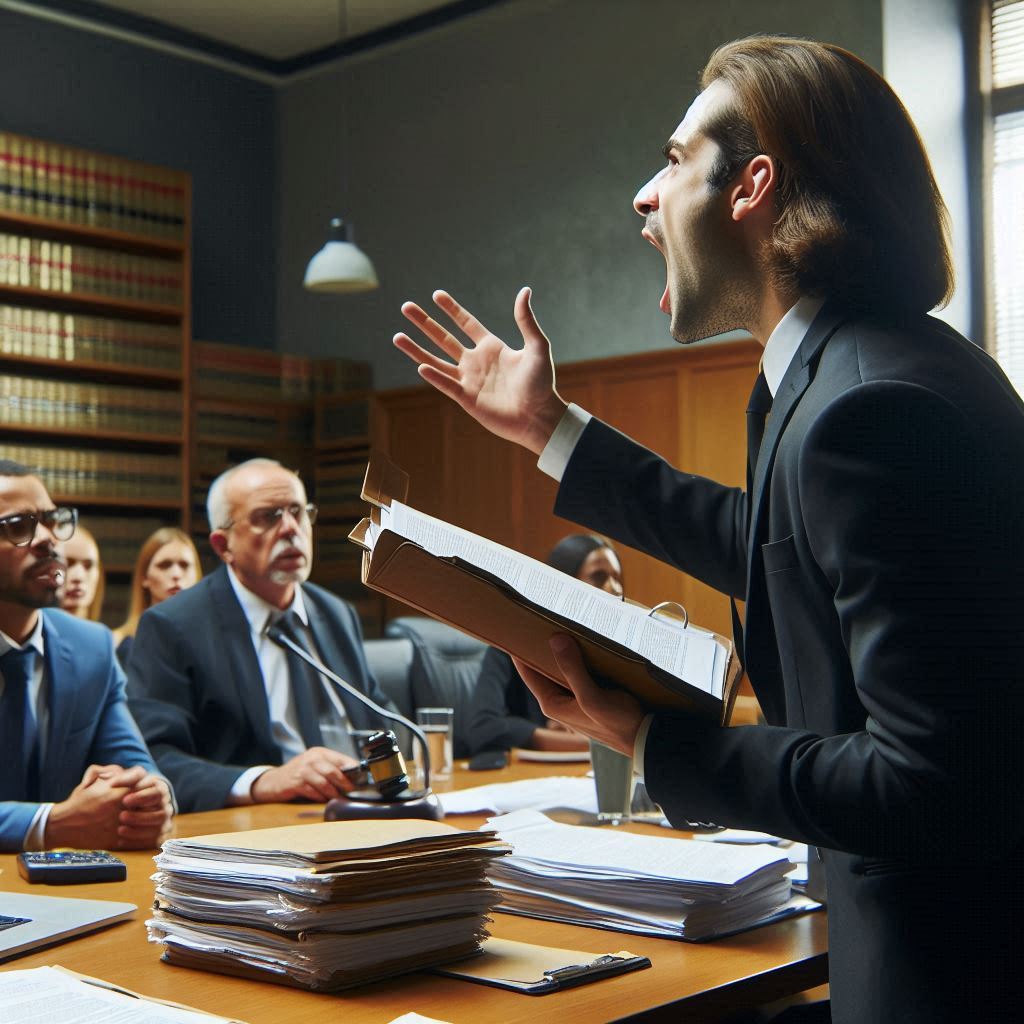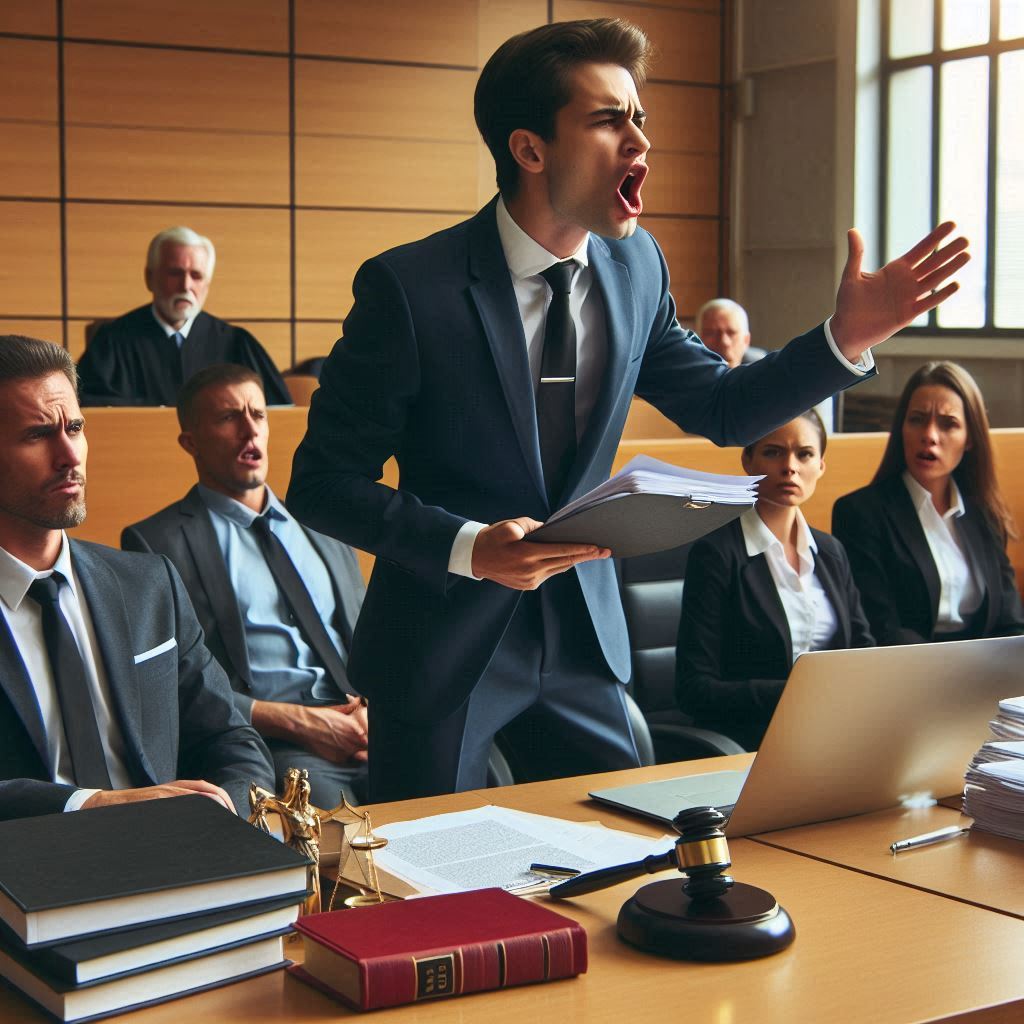Introduction
Prosecutors play a vital role in the legal field.
They represent the state or government in criminal cases, ensuring justice and upholding the law.
Their primary duty involves prosecuting criminal cases on behalf of the public.
Prosecutors review evidence, interview witnesses, and decide whether to file charges.
They must prove the defendant’s guilt beyond a reasonable doubt.
This role is crucial in maintaining public safety and order.
Ensuring Justice and Upholding the Law
Prosecutors ensure that justice is served by holding criminals accountable.
They work tirelessly to present evidence and argue cases in court.
This responsibility involves significant pressure, as the outcome of their work impacts the lives of victims and defendants.
Prosecutors must balance seeking justice with protecting the rights of the accused.
Their decisions can have lasting effects on communities and individuals.
Ensuring fair trials and respecting legal procedures is paramount in their role.
Prosecutors often face overwhelming caseloads.
They manage multiple cases simultaneously, which can lead to stress and burnout.
High caseloads require exceptional time management and organizational skills.
Prosecutors must prioritize cases based on severity and evidence availability.
This can result in some cases receiving less attention than they deserve.
The pressure to resolve cases quickly can compromise thorough investigation and preparation.
Balancing numerous cases while maintaining quality work is a constant challenge.
Ethical dilemmas are common in a prosecutor’s career.
They must navigate complex situations involving conflicting interests and moral judgments.
Prosecutors must ensure that justice is served while upholding ethical standards.
This includes disclosing exculpatory evidence and avoiding conflicts of interest.
They must remain impartial, even when public opinion pressures them otherwise.
Ethical breaches can lead to wrongful convictions or dismissals of valid cases.
Prosecutors must continuously evaluate their actions to uphold integrity and fairness.
Limited Resources
Prosecutors often work with limited resources.
Budget constraints can hinder their ability to thoroughly investigate and prepare cases.
Limited access to forensic labs, expert witnesses, and investigative tools can impact case outcomes.
Prosecutors must make difficult decisions about resource allocation.
They must prioritize cases with the highest impact while ensuring justice in all cases.
Resource limitations can lead to longer case resolution times and increased workloads.
Prosecutors must advocate for adequate funding to support their work.
Prosecutors face significant public and political pressure.
High-profile cases attract media attention and public scrutiny.
This can influence prosecutorial decisions and strategies.
Prosecutors must navigate the court of public opinion while maintaining legal standards.
Political influences can also impact prosecutorial independence.
Elected prosecutors may face pressure to align with political agendas.
Balancing public expectations and political influences with legal integrity is a challenging aspect of their role.
Emotional Toll
The emotional toll on prosecutors is significant.
They deal with traumatic cases involving violence, abuse, and loss.
Constant exposure to such cases can lead to emotional exhaustion and burnout.
Prosecutors must maintain professionalism while managing their emotional responses.
Support systems and mental health resources are essential to their well-being.
Balancing personal well-being with professional responsibilities is crucial for long-term success in the field.
Essentially, Prosecutors play a critical role in the justice system.
They face numerous challenges, including high caseloads, ethical dilemmas, and limited resources.
Public and political pressures, along with the emotional toll of their work, add to their burdens.
Despite these challenges, prosecutors strive to ensure justice and uphold the law.
Their dedication to public safety and legal integrity is essential for a fair and just society.
Heavy Workload
High Volume of Cases
Prosecutors handle a high volume of cases daily.
Each case demands significant time and attention.
Balancing numerous cases creates immense pressure.
This pressure affects their ability to give each case the attention it deserves.
The sheer volume of cases can lead to rushed decisions.
Consequently, the quality of justice may suffer.
Prosecutors often work long hours to manage their caseloads.
This workload can lead to burnout and fatigue.
Maintaining a high standard of work becomes challenging under such conditions.
The high volume of cases is a constant challenge for prosecutors.
Impact on Quality of Work and Decisions
The heavy workload impacts the quality of work and decisions made by prosecutors.
With too many cases, prosecutors might miss crucial details.
These details could affect the outcome of a case.
Rushed decisions may lead to wrongful convictions or acquittals.
The pressure to manage a heavy caseload can compromise their ability to perform thorough investigations.
Additionally, the stress from overwork can affect their judgment.
Prosecutors may struggle to prepare adequately for court.
This inadequacy can weaken their arguments and affect justice.
Ensuring fairness and accuracy becomes difficult when overwhelmed by workload.
The justice system relies on the thoroughness and precision of prosecutors, which the heavy workload can impede.
Strategies to Cope with Heavy Workload
Effective time management is crucial for prosecutors to cope with a heavy workload.
Prioritizing tasks helps in managing time efficiently.
Using calendars and scheduling tools can streamline their daily activities.
Setting realistic deadlines ensures that each case gets the necessary attention.
Delegation is another vital strategy.
Assigning tasks to support staff can lighten the load.
This allows prosecutors to focus on critical aspects of cases.
Additionally, regular breaks are essential to avoid burnout.
Maintaining a healthy work-life balance improves overall productivity.
Continuous professional development can enhance efficiency.
Learning new techniques and tools can help manage workload better.
Implementing these strategies can significantly improve prosecutors’ ability to handle a heavy caseload.
Generally, Prosecutors face a daunting workload that impacts their work quality and decisions.
The high volume of cases demands effective time management and delegation.
Prioritizing tasks and using scheduling tools can improve efficiency.
Delegation and regular breaks help prevent burnout and maintain productivity.
Despite these challenges, prosecutors strive to uphold justice.
Their dedication and hard work are crucial to the legal system.
Implementing effective strategies can help them manage their workload better.
This balance ensures that each case receives the attention it deserves.
Ultimately, addressing the heavy workload of prosecutors is essential for a fair and just legal system.
Read: Role of Prosecutors in the Juvenile Justice System
Limited Resources
- Prosecutors face the challenge of limited resources in the legal field.
- This includes inadequate funding and a shortage of staff available.
- Lack of resources can severely impact the ability to effectively prosecute cases.
- Prosecutors may struggle to gather evidence or conduct thorough investigations.
- Inadequate resources can lead to delays in court proceedings and trials.
Consequences of limited resources
- Prosecutors may be forced to prioritize cases based on available resources.
- High-profile cases might receive more attention at the expense of others.
- Limited resources can result in plea deals or reduced charges for some defendants.
- Prosecutors may feel overwhelmed and overworked due to resource constraints.
- Victims of crimes might not receive the justice they deserve due to resource limitations.
Suggestions for addressing resource constraints
- Advocating for increased funding for prosecutor’s offices is crucial.
- State and federal governments should allocate more resources to support prosecutors.
- Improving resource allocation within prosecutor’s offices can enhance efficiency.
- Training programs can help prosecutors make the most of limited resources.
- Collaboration with law enforcement agencies can help supplement resources for prosecutors.
Read: How to Prepare for a Career as a Prosecutor
Political Pressure
Challenges Of Navigating Political Pressure As A Prosecutor
Prosecutors often face the challenge of navigating political pressure in the legal field.
This pressure can come from various sources, including elected officials, interest groups, and the media.
- Political pressure can influence decision-making processes
- Prosecutors may feel compelled to take certain actions or make specific decisions to appease political interests
- This can lead to compromised integrity and independence in handling cases
Influence of Political Factors
Political factors can significantly impact prosecutors’ decision-making processes and case outcomes.
Elected officials may exert pressure on prosecutors to handle cases in a particular way to align with their political agenda.
- Prosecutors may face challenges in upholding justice objectively
- Political interference can undermine the fairness and impartiality of legal proceedings
- Pressure to secure convictions or dismiss cases based on political considerations can distort the legal process
Maintaining Independence and Integrity
Despite facing political pressure, prosecutors must strive to maintain their independence and integrity in the legal field.
There are several strategies that prosecutors can employ to resist political influence and uphold ethical standards.
- Establish clear ethical guidelines and standards for decision-making
- Consult with colleagues, mentors, and legal experts for advice and support
- Ensure transparency in decision-making processes and communicate openly with stakeholders
- Seek legal recourse or intervention if political pressure compromises the integrity of a case
In general, political pressure poses a significant challenge for prosecutors in the legal field.
Prosecutors can effectively navigate challenges by recognizing political influences, maintaining integrity, and seeking support when needed.
This approach upholds justice in their practice.
Read: The Role of Public Defenders in the Justice System

Public Scrutiny
Public’s Perception Of Prosecutors And The Impact Of Media Scrutiny On Their Work
- Prosecutors often face intense scrutiny from the public and media.
- Public perception of prosecutors can impact their credibility and effectiveness.
- Media scrutiny can amplify public opinion and influence the outcome of cases.
Consequences of Being Under Constant Public Scrutiny
- Constant public scrutiny can lead to increased pressure and stress for prosecutors.
- Negative public perception can damage a prosecutor’s reputation and career.
- Public scrutiny may affect decision-making and deter prosecutors from taking on challenging cases.
Strategies for Handling Public Scrutiny and Maintaining Professionalism
- Prosecutors should prioritize transparency and communication to address public concerns.
- Building strong relationships with the media can help manage public perception effectively.
- Seeking support from colleagues and mentors can provide guidance and assistance in navigating public scrutiny.
- Remaining focused on the ethical obligations of the legal profession can help prosecutors stay grounded and professional.
In a nutshell, public scrutiny is a significant challenge that prosecutors face in the legal field.
Prosecutors must recognize how public perception and media scrutiny affect their work.
They should develop strategies to handle these challenges effectively.
Maintaining professionalism is crucial.
Read: Public Defender Workload: What to Expect
Handling Difficult Witnesses and Victims
Working with reluctant witnesses and traumatized victims poses significant challenges for prosecutors in the legal field.
These individuals may be hesitant to testify or provide crucial information due to fear, trauma, or other personal reasons, which can significantly impact the success of a case.
Challenges of Working with Reluctant Witnesses and Traumatized Victims
- Reluctant witnesses may refuse to cooperate or may provide false information, hindering the investigation and prosecution process.
- Traumatized victims may have difficulty recalling details of the incident or may be emotionally unstable, affecting their credibility on the stand.
- Both types of individuals may require additional support and guidance to feel comfortable and confident in participating in the legal process.
Impact of Difficult Witnesses and Victims on Case Success
- Difficult witnesses and victims can weaken the prosecution’s case, as their testimonies are crucial in establishing guilt beyond a reasonable doubt.
- If witnesses refuse to testify or victims are unable to provide accurate information, it may result in dropped charges or acquittals.
- This can be frustrating for prosecutors who rely on witness cooperation and victim testimony to secure convictions.
Approaches for Engaging and Supporting Witnesses and Victims
- Prosecutors can build trust with witnesses and victims by maintaining open communication, addressing their concerns, and providing emotional support.
- Offering witness protection programs and counseling services can help alleviate fears and trauma, encouraging their participation in the legal process.
- Prosecutors should also educate witnesses and victims on the importance of their testimonies and the potential impact on the outcome of the case.
In essence, handling difficult witnesses and victims is a complex task that requires prosecutors to be empathetic, patient, and resourceful.
To boost successful case outcomes and deliver justice to crime victims, prosecutors must engage and support individuals effectively throughout the legal process.
You Might Also Like: Continuing Education for Legal Consultants: Why It Matters
Dealing with Legal Ethics
Legal ethics are the cornerstone of the legal profession, and prosecutors are held to a high standard when it comes to upholding these principles.
As a prosecutor, the importance of maintaining legal ethics cannot be overstated.
Transform Your Career Today
Unlock a personalized career strategy that drives real results. Get tailored advice and a roadmap designed just for you.
Start NowUpholding Legal Ethics
Prosecutors play a crucial role in the criminal justice system, and their adherence to legal ethics is essential for ensuring fair trials and upholding the rule of law.
By adhering to ethical standards, prosecutors demonstrate their commitment to justice and the integrity of the legal process.
Common Ethical Dilemmas
Prosecutors often face ethical dilemmas in their practice, with one of the most common being the duty to disclose exculpatory evidence to the defense.
This obligation, established in the landmark case Brady v.
Maryland, requires prosecutors to turn over evidence that may be favorable to the accused.
Failing to disclose such evidence can lead to wrongful convictions and undermine the credibility of the justice system.
Another ethical dilemma faced by prosecutors is the pressure to secure convictions at all costs.
While prosecutors are tasked with seeking justice, they must also ensure that the rights of the accused are protected.
Balancing these competing interests can be challenging, especially in high-profile cases where there is significant public or political pressure to secure a conviction.
Additionally, prosecutors may also face conflicts of interest that can impact their ability to impartially pursue justice.
For example, a prosecutor who has a personal relationship with a witness or victim in a case may be placed in a difficult position where their judgment could be clouded by their personal connection.
Ways to Navigate Ethical Challenges
To navigate these ethical challenges while maintaining professionalism and integrity, prosecutors must prioritize transparency and fairness in their practice.
One way to do this is by establishing clear guidelines for handling evidence and disclosing information to the defense.
Prosecutors should also seek guidance from their colleagues and supervisors when faced with ethical dilemmas to ensure that they are making informed decisions.
By consulting with others, prosecutors can gain different perspectives on the situation and make ethical choices that align with the principles of the profession.
Furthermore, prosecutors can benefit from participating in ongoing training and education on legal ethics to stay up-to-date on the latest developments in the field.
By continuously improving their knowledge and skills, prosecutors can better navigate ethical challenges and uphold the integrity of the legal profession.
In review, dealing with legal ethics is a fundamental aspect of a prosecutor’s practice.
By upholding legal ethics, recognizing ethical dilemmas, and navigating challenges, prosecutors maintain professionalism and integrity.
Conclusion
Prosecutors encounter difficulties in gathering evidence, often facing uncooperative witnesses.
They must navigate complex legal procedures and rules of evidence during trials.
Prosecutors face intense pressure to secure convictions, balancing justice with public expectations.
The adversarial nature of the legal system means prosecutors face aggressive defense tactics.
Dealing with victims and witnesses who may be traumatized and uncooperative poses significant challenges.
Prosecutors must handle a heavy caseload, leading to time constraints and potential burnout.
They face ethical dilemmas, such as disclosing exculpatory evidence to the defense.
Furthermore, prosecutors may face political pressure to prioritize certain cases over others.
In summary, prosecutors in the legal field face a multitude of challenges, from evidentiary issues to ethical dilemmas.
Addressing these challenges is crucial to maintain the integrity of the legal system and ensure that justice is upheld.
By recognizing and overcoming these obstacles, prosecutors can better serve the public and promote a fair and just legal system.
[E-Books for Sale]
The Big Book of 500 High-Paying Jobs in America: Unlock Your Earning Potential
$19.99 • 500 High-Paying Jobs • 330 pages
Explore 500 high-paying jobs in America and learn how to boost your career, earn more, and achieve success!
See All 500 High-Paying Jobs of this E-Book
1001 Professions Without a Degree: High-Paying American Jobs You Can Start Now
$19.99 • 1001 Professions Without a Degree • 174 pages
Discover 1001 high-paying jobs without a degree! Unlock career tips, skills, and success strategies for just $19.99!




